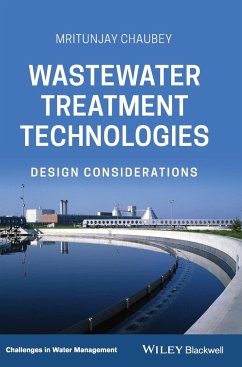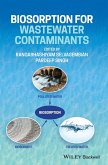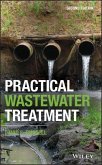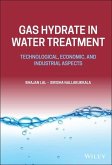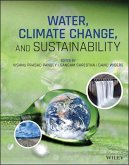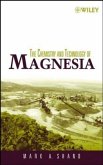WASTEWATER TREATMENT TECHNOLOGIES
Globally, the practice of wastewater treatment before discharge is inconsistent. The United Nations World Water Development Report (2017) estimated that, globally, over 80% of all wastewater is discharged without treatment. The discharge of untreated or inadequately treated wastewater into the environment results in the pollution of surface water, soil and groundwater. According to the WHO, water-related diseases kill around 2.2 million people globally each year, mostly children in developing countries. We need to understand that wastewater is not merely a water management issue - it affects the environment, all living beings, and can have direct impacts on economies.
The establishment of UN Sustainable Development Goal 6 (Clean Water and Sanitation), which aims to ensure availability and sustainable management of water and sanitation for all, reflects the increased attention on water and wastewater treatment issues in the global political agenda. Water reuse is one of the most efficient, cost effective and eco-friendly ways to ensure water resilience. Embedding sustainability into wastewater treatment is the best opportunity for industries to drive smarter innovation and efficient wastewater treatment. The modern concept of industrial wastewater treatment is moving away from conventional design. Wastewater treatment technology is moving towards extreme modular design using smart and sustainable technology.
This book is intended as a reference book for all wastewater treatment professionals and operational personnel. It may also be used as a textbook on graduate and postgraduate courses in the field of wastewater treatment and management. The book takes a holistic view of the practical problems faced by industry and provides multiple needs-based solutions to tackle wastewater treatment and management issues. It elaborates on selection of technology and their design criteria for different types of wastewater. This will enable engineering students and professionals to expand their horizons in the fields of wastewater treatment and management.
Hinweis: Dieser Artikel kann nur an eine deutsche Lieferadresse ausgeliefert werden.
Globally, the practice of wastewater treatment before discharge is inconsistent. The United Nations World Water Development Report (2017) estimated that, globally, over 80% of all wastewater is discharged without treatment. The discharge of untreated or inadequately treated wastewater into the environment results in the pollution of surface water, soil and groundwater. According to the WHO, water-related diseases kill around 2.2 million people globally each year, mostly children in developing countries. We need to understand that wastewater is not merely a water management issue - it affects the environment, all living beings, and can have direct impacts on economies.
The establishment of UN Sustainable Development Goal 6 (Clean Water and Sanitation), which aims to ensure availability and sustainable management of water and sanitation for all, reflects the increased attention on water and wastewater treatment issues in the global political agenda. Water reuse is one of the most efficient, cost effective and eco-friendly ways to ensure water resilience. Embedding sustainability into wastewater treatment is the best opportunity for industries to drive smarter innovation and efficient wastewater treatment. The modern concept of industrial wastewater treatment is moving away from conventional design. Wastewater treatment technology is moving towards extreme modular design using smart and sustainable technology.
This book is intended as a reference book for all wastewater treatment professionals and operational personnel. It may also be used as a textbook on graduate and postgraduate courses in the field of wastewater treatment and management. The book takes a holistic view of the practical problems faced by industry and provides multiple needs-based solutions to tackle wastewater treatment and management issues. It elaborates on selection of technology and their design criteria for different types of wastewater. This will enable engineering students and professionals to expand their horizons in the fields of wastewater treatment and management.
Hinweis: Dieser Artikel kann nur an eine deutsche Lieferadresse ausgeliefert werden.

